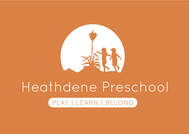Our Learning Environment
Custom-designed spaces inspired by the Early Years Learning Framework (EYLF)
Our play-based educational curriculum evolves from the strong relationships between children, educators, and families, where we extend children’s skills for lifelong learning and their preparation for transition to school.
We strongly believe in the environment being the third teacher and as such, create beautifully aesthetic organised spaces, where children feel welcomed and encouraged as capable and responsible learners.
Sustainability plays a large part in our program. From our free-range hens to vegetable and sensory garden, worm farm, phasmids and rabbits, we strongly believe in providing children with opportunities to cultivate their interests and wonder for nature.
Our outdoor space is designed to encourage exploration, imagination and inquiry. Children have plenty of space to run and explore the natural environment. It includes a farmhouse cubby, worm farm, rabbits, chickens, a vegetable garden, an expansive sandpit, gazebo, play boat, multiple climbing frames, swing set, grassy areas as well as large, open spaces to allow flexible and sensory play. Children can choose from a wide range of equipment to follow their unique interests.
Our indoor space includes three separate rooms, including a dedicated room for our 2 year olds. Each room has recently undergone a makeover and is designed to allow flexibility of play – small, quiet areas for reading, drawing or constructing flow into large, open areas for imaginative play and structured group learning experiences.
Play-based learning
Learning takes place within play. We create flexible spaces that are responsive to the interests and abilities of each child. The educators and children engage in collaborative decision-making about the equipment, ideas and experiences used and have opportunities to explore:
- Art, dough or clay
- Reading library
- Writing and drawing space
- Dramatic, active and imaginative play
- STEM: Science and numeracy experiences such as puzzles, blocks and construction
- Literacy: Language, literature and storytelling
- Music and movement
- Sensory motor activities
- Experiences to promote physical development and coordination
Christian Values
In our learning environment we uphold Christian values. We focus on the holistic development of the young children in our care that includes the development of their character in the ways of love, joy, peace, patience, kindness, goodness, faithfulness and gentleness. Qualities of respect, trust, honesty, integrity, compassion, courage and resilience are fostered.
Transition to School
Heathdene recognises that starting school is a significant milestone for both children and their families and we are here to support you and your family through this exciting and challenging time. We value strong relationships and communication between families and schools to better help support your child's successful transition to school.
At Heathdene, supporting children to transition to school is part of our everyday program. Many of the elements of “big school” are incorporated throughout our program and are authentically embedded within the preschool day. Our quality play-based programs are based on current research and are planned by experienced and qualified early childhood educators.
Upon enrolment at Heathdene, your child will be allocated a focus teacher who is responsible for the planning, documenting and evaluating the ongoing assessment of learning of your child.
Both individual and group observations are recorded and shared with you on OWNA and support all aspects of your children's learning.
Planning for the educational program and practices focus on reaching the learning outcomes set out in The Early Years Learning Framework (EYLF).
Your child will also receive a Transition to School Statement from their Heathdene Preschool teacher. The Transition to School Statement provides a snapshot of each child's strengths, perspectives, and personality, and also gives them a voice in the process of meeting new people in the school environment. It helps link the Early Years Learning Framework to the Early Stage 1 Syllabus in kindergarten so that teachers can better understand each child's learning, development and background.
Note: Children in NSW are required to start Kindergarten by their 6th Birthday (in the year they turn 6). Considering sending your child to school earlier than this (Birthdays Jan-July) can be discussed with your child’s teacher, the school and any other professionals your family is working with.
Communicating with Families
Documentation of children’s learning together with communicating with families is an integral part of the preschool. At Heathdene we utilise an easy-to-use app called OWNA to provide daily reflections of the children's activities. Our teachers are able to share individual stories, photos, videos and messages about your child, as well as whole group communication. OWNA also has a great function of being able to produce digital portfolios about your children at the end of the Preschool Year, which replace the old hard-copy journals. This gives our teachers more time to spend with your children, as well as keeping up to date with today's digital technology.
At Heathdene we are also active on Facebook and Instagram, and where permission has been provided, we share photos and information about our preschool activities. We encourage all our parents to like us on Facebook and follow us on Instagram so that you can always stay up to date.
To ensure our families don't ever miss out on any vital information, we communicate regularly with parents about upcoming preschool events and all other administrative enquiries also via OWNA.
Most importantly, we are always happy to speak with you on the preschool grounds while dropping off or picking up your child, so that we can provide the best opportunities for your child each day.
